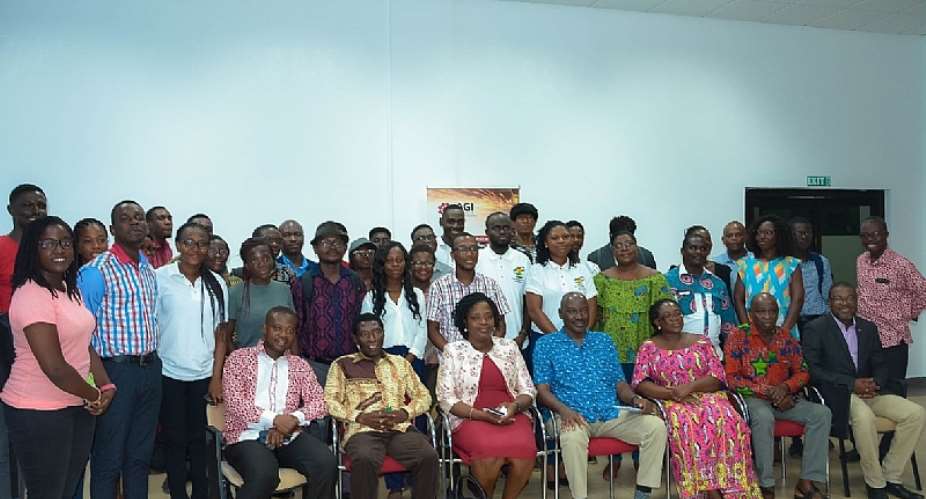In furtherance of its ambition to plastic management practice in Ghana, the Ghana Recycling Initiative by Private Enterprises (GRIPE), has engaged stakeholders at a one-day workshop on the sustainable management of this resource.
At the workshop organized by the private sector coalition under the aegis of the Business Sector Advocacy Challenge (BUSAC) Fund with support from the Association of Ghana Industries (AGI), the coalition called on all stakeholders to re-think plastics, as just waste and begin to see it as a resource which has the potential to unlock enormous economic value for Ghana.
Speaking at the workshop, Mr. Seth Twum-Akwaboah, Chief Executive Officer of the AGI, underscored private sector’s commitment towards the issue of plastic waste management in the country, its show of leadership with the formation of GRIPE and investment in solutions to tackle post-consumer waste of the plastic life cycle.
“Our member companies are very concerned about the littering issue because we live and operate in the communities; this is one of the reasons why we formed GRIPE to manage the environmental impact of plastics. GRIPE started very small, but we are gradually growing and moving towards achieving our objectives of contributing to increased recycling rates and improving plastic waste management practices in Ghana”, he added.
He further stated that the journey towards ensuring that plastics become a resource of beneficial value to Ghanaians rather than banning it, will involve all stakeholders playing their part to create the much-needed circular environment in the country.
Naa Ayeleysa Quaynor-Mettle, a member of the GRIPE working group and Pick-It Project Manager for FanMilk, said the benefits of plastics to health, hygiene and quality of life has proven to be enormous accounting for the exponential growth in plastic use. Regrettably, sustainable management of post-consumer plastic remains a national challenge as only 2% of the estimated yearly generation, of over one million tonnes, is recycled.
“The problem Ghana faces is not a plastics problem but a littering problem. What GRIPE seeks to achieve is to stimulate a holistic solution to support the development of a robust circular economy and to promote recycling and second life for plastics here in Ghana”, she added.
Mr. Essuman, lecturer at the Department of Food Process Engineering, University of Ghana, in a presentation to participants noted that Ghana needs a 3-pronged solution to effectively deal with the plastic menace currently confronting it.
“As a country, in order to effectively deal with the plastics waste menace, we need to have technical & engineering solutions in place, a plastic waste management system and a behavioural & attitudinal change from all of us. I believe this is what GRIPE has started and it is my hope that with the necessary support from all stakeholders, we can
The Workshop which took place at the Bank of Ghana Auditorium, University of Ghana, brought together key stakeholders in the plastic value chain including Policymakers, Civil Society Organisations (CSOs), the Media, Academia, industry and Development partners.
Among others, it highlighted the current regulatory requirement on the use of oxo-biodegradable additives, the benefit of plastics to food safety, and the various second-life solutions that affirm post-consumer plastics as a beneficial resource the County can be harnessed.
Participants were also taken through the various interventions introduced by GRIPE including, collection schemes and the Modified Concrete Project currently being piloted by GRIPE. This pilot research project employs post-consumer plastic waste in the manufacture of concrete blocks. Scientific data generated from this project is expected to influence policy formulation, further research and/or replication in other parts of the country.





 Minority will expose the beneficial owners of SML, recover funds paid to company...
Minority will expose the beneficial owners of SML, recover funds paid to company...
 Prof. Opoku-Agyemang has ‘decapitated’ the NPP’s strategies; don’t take them ser...
Prof. Opoku-Agyemang has ‘decapitated’ the NPP’s strategies; don’t take them ser...
 Abubakar Tahiru: Ghanaian environmental activist sets world record by hugging 1,...
Abubakar Tahiru: Ghanaian environmental activist sets world record by hugging 1,...
 Prof. Naana Opoku-Agyemang will serve you with dignity, courage, and integrity a...
Prof. Naana Opoku-Agyemang will serve you with dignity, courage, and integrity a...
 Rectify salary anomalies to reduce tension and possible strike action in public ...
Rectify salary anomalies to reduce tension and possible strike action in public ...
 Stop all projects and fix ‘dumsor’ — Professor Charles Marfo to Akufo-Addo
Stop all projects and fix ‘dumsor’ — Professor Charles Marfo to Akufo-Addo
 Blue and white painted schools will attract dirt shortly – Kofi Asare
Blue and white painted schools will attract dirt shortly – Kofi Asare
 I endorse cost-sharing for free SHS, we should prioritise to know who can pay - ...
I endorse cost-sharing for free SHS, we should prioritise to know who can pay - ...
 See the four arsonists who petrol-bombed Labone-based CMG
See the four arsonists who petrol-bombed Labone-based CMG
 Mahama coming back because Akufo-Addo has failed, he hasn't performed more than ...
Mahama coming back because Akufo-Addo has failed, he hasn't performed more than ...
